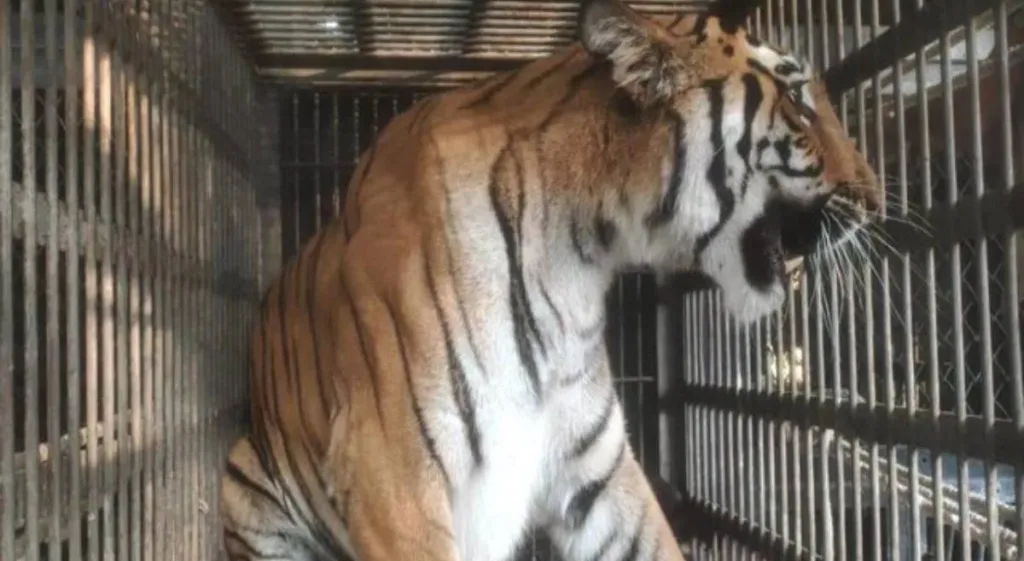Pune : Bhakti Tigress From Katraj Zoo Finds New Home at Nahargarh Biological Park In Jaipur

Pune : Bhakti Tigress From Katraj Zoo Finds New Home at Nahargarh Biological Park In Jaipur
The Nahargarh Biological Park, nestled in the vibrant city of Jaipur, is gearing up to introduce an exciting Tiger Safari Expedition. As part of this initiative, the park is set to welcome tigers from various regions across the country, with the esteemed Bhakti Tigress from Rajeev Gandhi Zoological Park in Pune, India, being the first to make the journey. In exchange, the Nahargarh Biological Park will be receiving three foxes and a female Taras through the Animal Exchange Program.
Accompanied by Dr. Arvind Mathur and a dedicated team, Bhakti embarked on her journey from Pune. However, before joining her fellow tigers, she will undergo a mandatory 21-day quarantine period to ensure her health and well-being. Following this, Bhakti will be relocated to her new habitat within the Nahargarh Biological Park, offering visitors an up-close encounter with the majestic tigress.
In addition to Bhakti, the park is also awaiting the arrival of another pair of tigresses from Nagpur, pending necessary permissions. Significant investment has been made to ensure the successful implementation of this initiative, prioritizing the safety and welfare of all tigers involved.
Visitors to the Nahargarh Biological Park can look forward to an immersive experience along an 8-kilometer track, allowing them to observe the tigers in their natural habitat for up to 45 minutes.
Furthermore, recent developments at the Rajiv Gandhi Zoological Park in Pune have seen the introduction of a male leopard, two male and two female four-horned antelopes, two-striped hyenas, and a male hyena. The male leopard is intended to be paired with the existing female leopards, while the four-horned antelopes will join their counterparts to expand breeding opportunities. Similarly, the addition of hyenas will enrich the park’s existing population, promoting conservation efforts and enhancing the overall biodiversity of the zoo.












